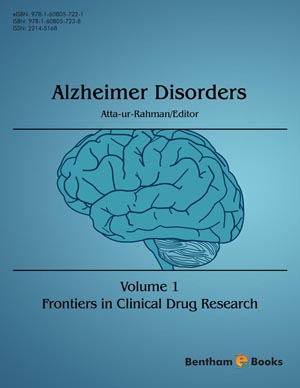Abstract
Alzheimer’s disease (AD) is a most prevalent neurodegenerative disorder and most common cause of dementia, which affects approximately 36 million people worldwide as of 2011 and threatens to be the scourge of the 21st century. AD is characterized by progressive cognitive decline that usually starts with memory deficit and progresses to cause a more generalized cognitive dysfunction, behavioral dysregulation, and neuropsychiatric symptoms, which result in complete loss of life skills and death. The high morbidity and mortality are always the case attributed to lack of effective therapies and prevention strategies because many aspects of its pathogenesis remain unclear. This review discusses the effectiveness and problems with current pharmaceutical treatment. It exemplifies natural compounds and target synthetic drugs as appropriate therapies and formulates rational guidelines for prevention of AD.
Keywords: Alzheimer’s disease (AD), Phytochemicals, Resveratrol, Curcumin, EGCG, Ginkgo biloba, Ginseng, Huperzine A/B, Acetylcholinesterase inhibitors, NMDA receptor antagonists, Amyloid β peptide, BACE1, γ-secretase, Tau protein, GSK3, PDEs, Opioid System.






















